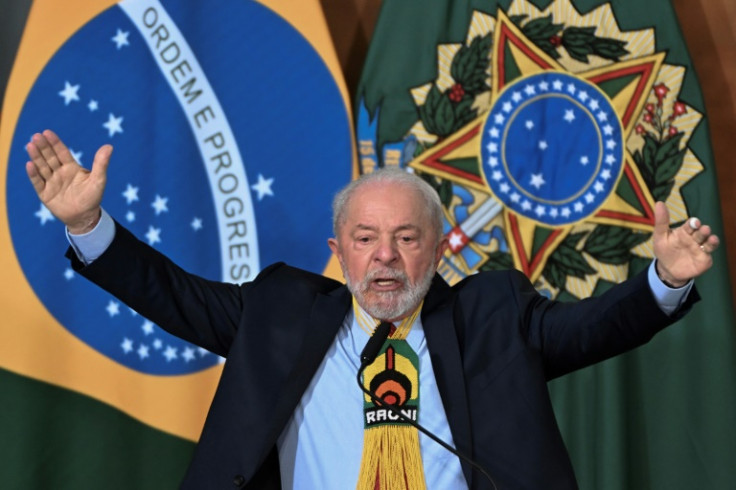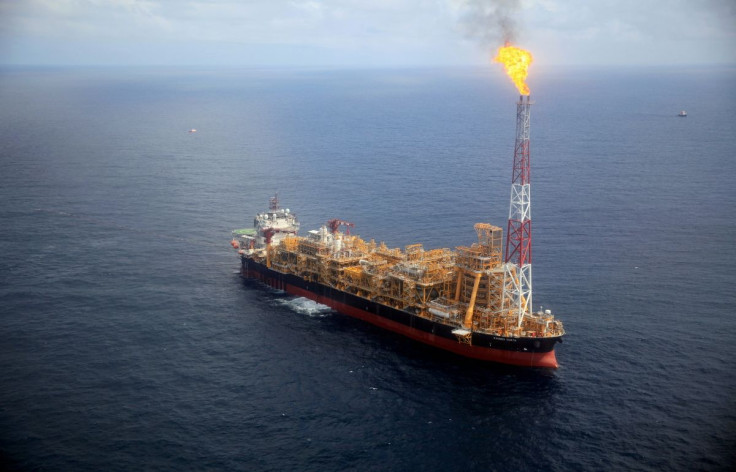Brazil Hedges Bets On Energy As Social Agenda Tops Lula's Priorities

What are the real priorities of President Luiz Inácio Lula da Silva for the energy industry? That question has puzzled analysts, as developments like a nearly two thirds reduction in year-over-year Amazon deforestation conflict with rising investments in fossil fuels.
Lula's election to a third term in 2022 was heralded as a victory for the country's environmental conservationist movement. But his administration has received criticism over rising oil and gas production, which reached an all-time record in September.
"Domestic drivers are the main factors influencing policy making," Mario Braga, lead analyst for Brazil at Control Risks, a global risk consultancy firm, told International Business Times.
Braga said that the administration's ambitious social agenda takes precedence over renewable energy commitments, which directly affects the country's reliance on fossil fuels.
According to the analyst, Lula is embracing both high- and low-carbon energy sources in an attempt to increase state revenue and bolster energy security. The idea is to primarily fund expansions of social welfare programs using natural resource royalties, a continuity from Lula's previous tenure in office.
Lula served as president for two terms from 2003 to 2010.
Latin America's #1 Oil Producer

Oil and gas production in Brazil have steadily increased since the first major offshore oil discovery in the pre-salt layer, in 2006. The country produced a record 3.67 million barrels of crude oil per day in September.
Brazil surpassed Venezuela as the largest oil producer in Latin America in 2016, and was the ninth largest producer in the world in 2022, according to the U.S. Energy Information Agency. Crude oil was Brazil's third-most commonly exported product in 2021, behind iron ore and soybeans.
"Lula sees state-owned enterprises as policymaking tools," Braga said.
Brazil's state-owned oil company Petrobras' oil output grew 9% in the third quarter from a year earlier, according to preliminary results. Petrobras' operations account for 73% of Brazil's annual oil and gas production.
"They couldn't afford giving up oil production at this time," the analyst said, referencing the economic growth offered by continued oil extraction and present fiscal constraints. Lula's party also faces unprecedentedly combative congressional opposition.
Expanding fossil fuel generation is a priority at this time, according to Braga, at least partially because of Brazil's need to diversify its electrical grid. An extreme drought led to blackouts across the country's hydroelectric dam-dependent grid in 2021, exposing systemic vulnerabilities.
"Having the tools to keep [electrical] prices low is an important lever that they want to be able to pull, if needed," Braga said, though he stressed that expansions in wind and solar energy are more important for the future stability of Brazil's energy grid.
Lula's Green Record
Although Brazil has increased its fossil fuel capacity under Lula, it has also simultaneously pursued an expansion of renewable energy systems.
The country continues to attract new investments in onshore solar and offshore wind energy. In late October, French utility Engie finalized a $660 million takeover of Atlas Energy. In the same week, Portuguese utility EDP sold two transmission lines to private equity firm Actis in a deal valued at $536 million.
"This is the moment to place Brazil at the forefront of the energy transition," Mauricio Bahr, the head of Engie in Brazil, told Bloomberg on Monday.
Solar and wind energy are the two fastest-growing sources in Brazil. Solar energy's share of national electrical generation increased by nearly twenty-fold from 2017 to 2022; wind energy's share doubled over that period.
At the same time, renewable energy investors are more comfortable with Brazil relative to other locations in Latin America.
"Contract risks remain very low in Brazil" since Lula took office, Braga said. "It's highly unlikely that any state or municipal authorities will interfere with existing contracts."
Still, those investments won't be enough to alter Brazil's carbon-intensive reality, with Petrobras signaling a maximum commitment of 15% to renewable energy technologies in its upcoming five-year budget.
As Lula's government looks to take a leading role at the COP 28 climate convention at the end of November in Dubai, it will need to answer for surging oil production and the country's inability to finalize a carbon market, the legislation for which has still not been approved by Congress' lower house.
"It's not just energy. When we talk to people in mining and other sectors, all of them complain, to some extent, that the government lacks a clear strategic policy," Braga said.
© Copyright IBTimes 2024. All rights reserved.






















